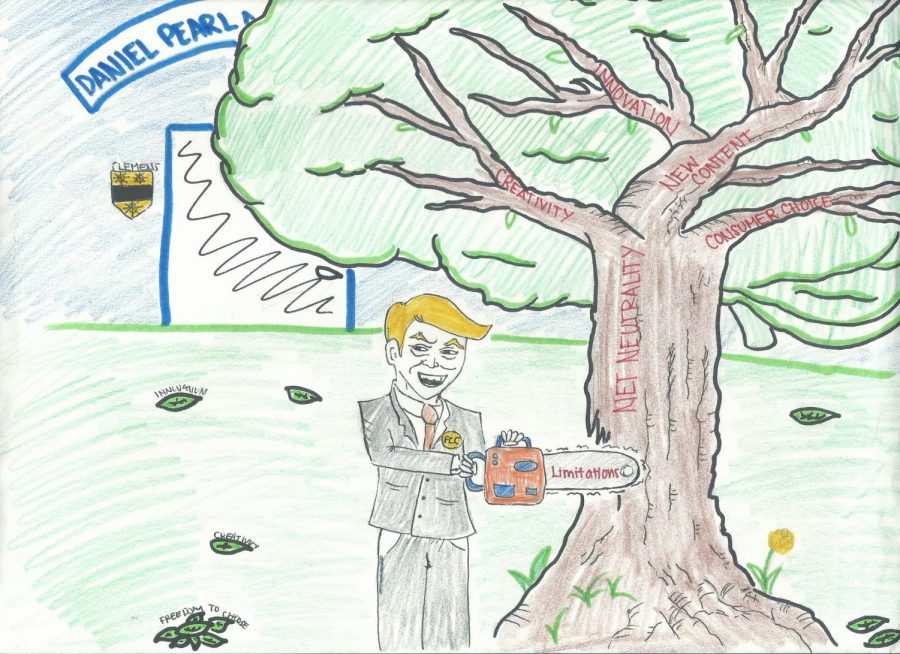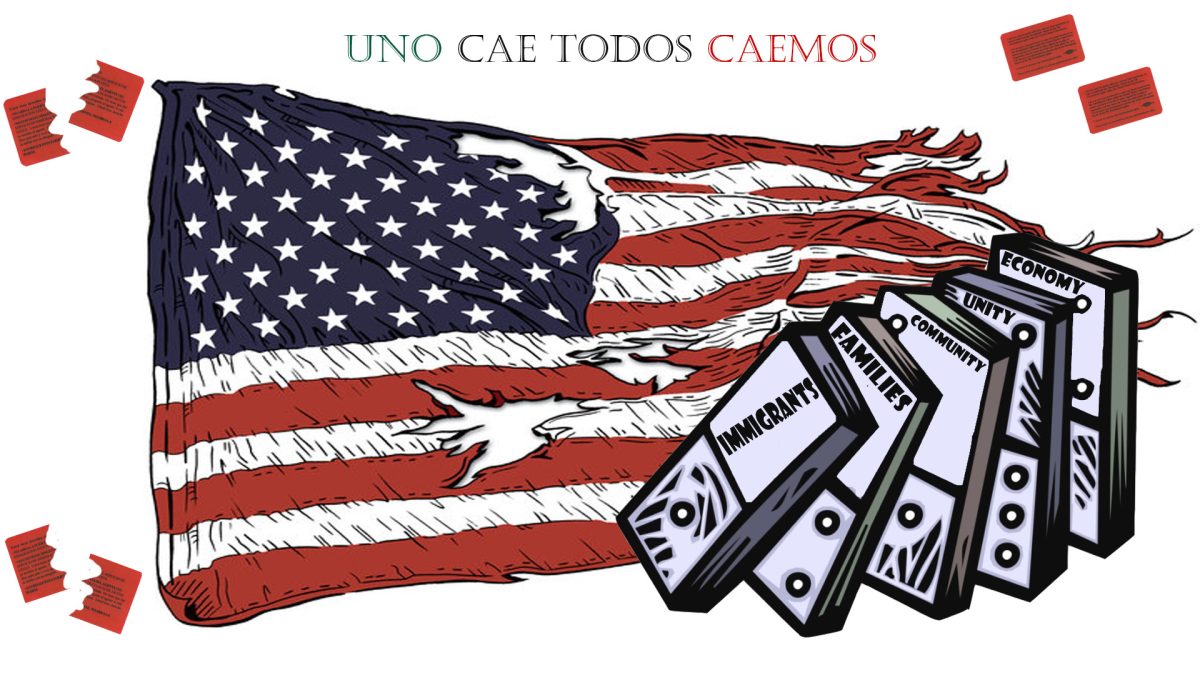Internet freedom doomed with possible repeal of net neutrality
The tree symbolizes net neutrality, which is proposed to be repealed by the Federal Communications Commission. The limitations of the FCC, which is symbolized by the chainsaw, prevents students from being able to choose which websites they want to search and from being creative.
December 8, 2017
The free and open internet may not be free and open anymore as the Federal Communications Commission (FCC) announced a vote to repeal net neutrality.
On Nov. 21, FCC Chairman Ajit Pai announced a vote to repeal the Obama-era decision which allowed Internet Service Providers (ISPs) to be regulated like utilities. Pai is one of five commissioners who will vote on the issue on Dec. 14. Should the repeal pass, ISPs would be free to charge consumers a premium fee to access certain sites, or to charge for a priority connection. For many people, it may lead to an increase in the price of broadband.
“It seems to me that it is very important for our success as a nation that we keep access to information free and fair,” Calculus and Algebra 2 teacher Leslie Hicks said. “I post videos online for my students to watch and it is critically important to my student’s success that they have access to the content.”
Title I schools would feel the crunch, as they would have to spend more for internet access. Should school districts not allocate an increased budget to account for the increased costs, schools will be forced to re-allocate money from their own budget, potentially at the cost of student resources. Daniel Pearl Magnet High School already receives limited money from the district and students feel every penny pinched.
“Our internet providers are already very scummy people,” junior Adrian Contreras said. “We would have to sacrifice utilities or expenses. It’ll probably affect my school work, academic work given online and my ability to complete research projects.”
A repeal would mean that users might have to pay a premium fee to use applications such as Snapchat and Instagram. For many students, it would be unaffordable.
Opponents have attacked net neutrality as executive overreach, stating that it undermines investment, reduces jobs and stifles creation of services.
There are concerns that a repeal would lead to further monopolization of internet service. Many Americans can’t choose an ISP due to monopolies and repealing net neutrality would also remove any safeguards consumers have against exploitation. While the FCC would argue that less regulation would mean more competition moving into the area, this hasn’t been the case as the monopolies enjoyed by many ISPs are often the result of intense government lobbying.
“Corporations will probably begin vertical integration,” media teacher Mark Middlebrook said. “Vertical integration is when they take and solidify all existing companies from the bottom up, containing everything under one banner.”









